Brian and I were in downtown Minneapolis taking a walk and along the way I was photographing buildings. In one case, a security guard told me to stop. He assured me that if I continued to take pictures of privately owned buildings, other security guards would approach me as he did. He said that I was on private property, standing in the green space outside of the building, and as such I needed to get permission to take pictures of the building. I asked him if Google asked for permission to take photos of the building for its maps. With a straight face, he told me that they had. Last year a similar thing happened. Two security guards told me that the skyways were private property and that photography was prohibited. I can’t take a picture of Brian with the background of the city behind him from a skyway? No, according to these guys. Even after joining us in singing “Happy Birthday” to my sister over the phone, they wouldn’t allow it.
As I understand this article, this is off base, but I’ll need to learn more. I’m particularly interested in this:
You can take photos any place that’s open to the public, whether or not it’s private property. A mall, for example, is open to the public. So are most office buildings (at least the lobbies). You don’t need permission; if you have permission to enter, you have permission to shoot.
And this…
Note that the limits have nothing to do with where you are when you take the shots; it’s all about the subject’s expectation of privacy. You can be on private property (a mall or office-building lobby), or even be trespassing and still legally take pictures. Whether you can be someplace and whether you can take pictures are two completely separate issues.
Wouldn’t skyways fall under this definition of “private space that’s open to the public?” Wouldn’t the green space outside of a building that is open to the public fall under this definition? Legal or not, I’m baffled by the objection to photographing buildings, especially from the outside. I could guess at a motivation. My mind goes to the fear of getting sued. There must be more to it.
Moreover, if I did nothing wrong, don’t the actions of the security guard amount to harassment? Shouldn’t there be a penalty for making up laws to get people to do what you want them to do? Had I known that I was not breaking any laws, what would have been my options in any case? Argue with the guy? Refuse to stop taking pictures on principle?
Had I been taking pictures with a smart phone, I doubt I would have raised concerns. In fact, it wasn’t that long ago that I took numerous pictures of advertisements at the Mall of America*. The Mall of America, for crying out loud. No one said a word about it. But take out a real camera on a quiet Sunday afternoon and suddenly the security guards are enforcing phantom laws. Apparently, we can take pictures anywhere we like as long as our camera is attached to a selfie stick.
In the age of surveillance where not even our email is presumed to be private and where there is a security camera on every street corner, who’s getting whipped up over an amateur photographer taking an interest in the architecture of her city? I think it comes down to who has the power.
On the upside, that day I did meet a photographer along the way (this was before the security guard incident, so there wasn’t a chance to get his take). He asked me if I got this building, that building, this bridge or that one. He was full of encouragement and didn’t think to warn me that I might be breaking the law. I wouldn’t have been surprised to learn he teaches photography or that I had been talking to a famous photographer. I regret that I didn’t directly ask. I would have liked to talk to him again.
Here are some pictures I took. I’d like to get better at this. Right now I’m just trying to figure out where the buttons on my camera are.
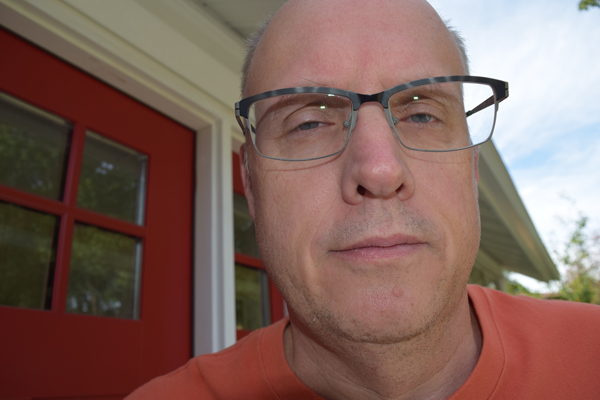
[Leaving the house. Brian being a good sport.]
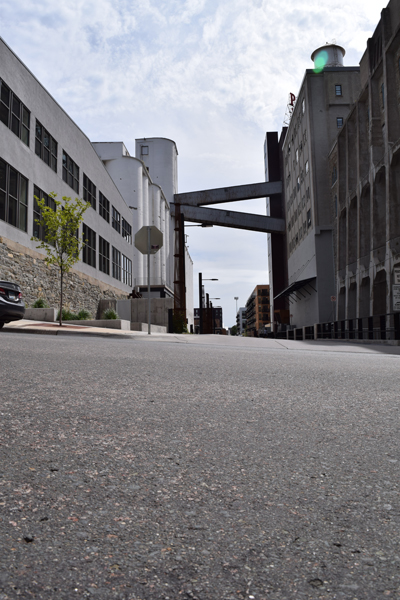
[This new housing development caught my attention in Northeast Minneapolis.]
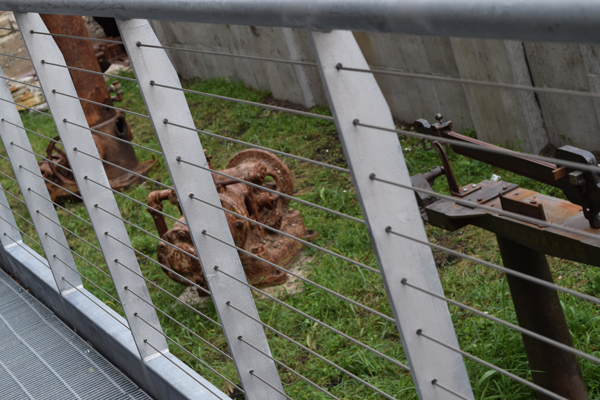
[Mixing the old with the new.]
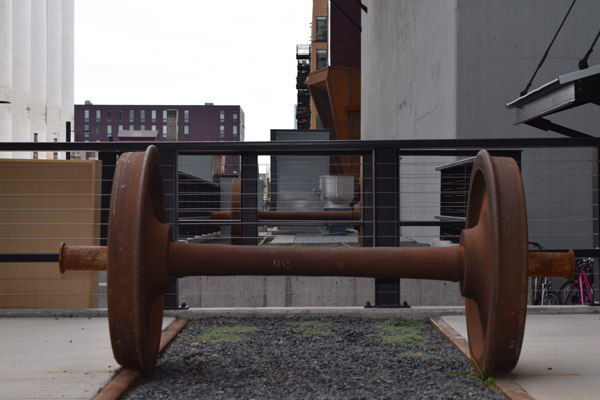
[They incorporated a lot of rusty relics on the grounds, but I’m not sure what any of it is.]
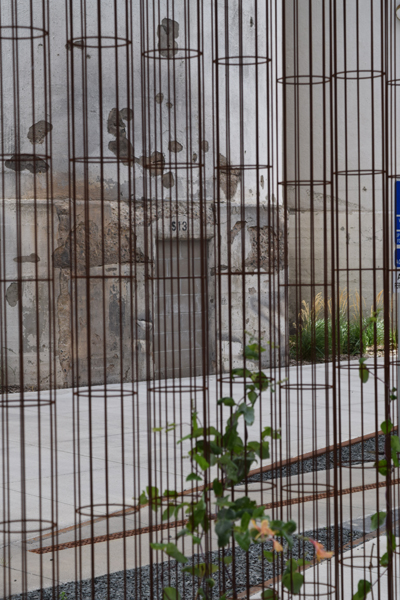
[Flowers on a wire fence. In this case, I’m focused on the building with the number “513” behind them.”]
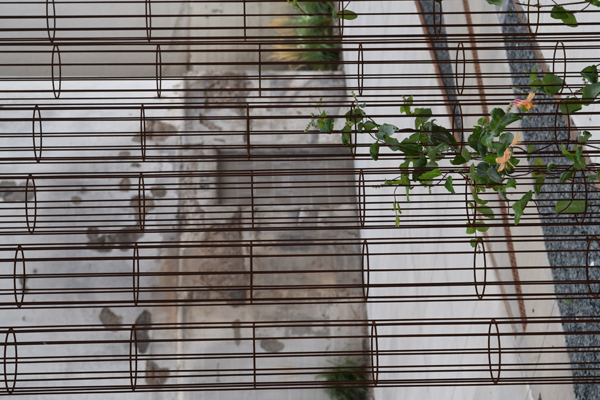
[This time I’m focused on the fence.]
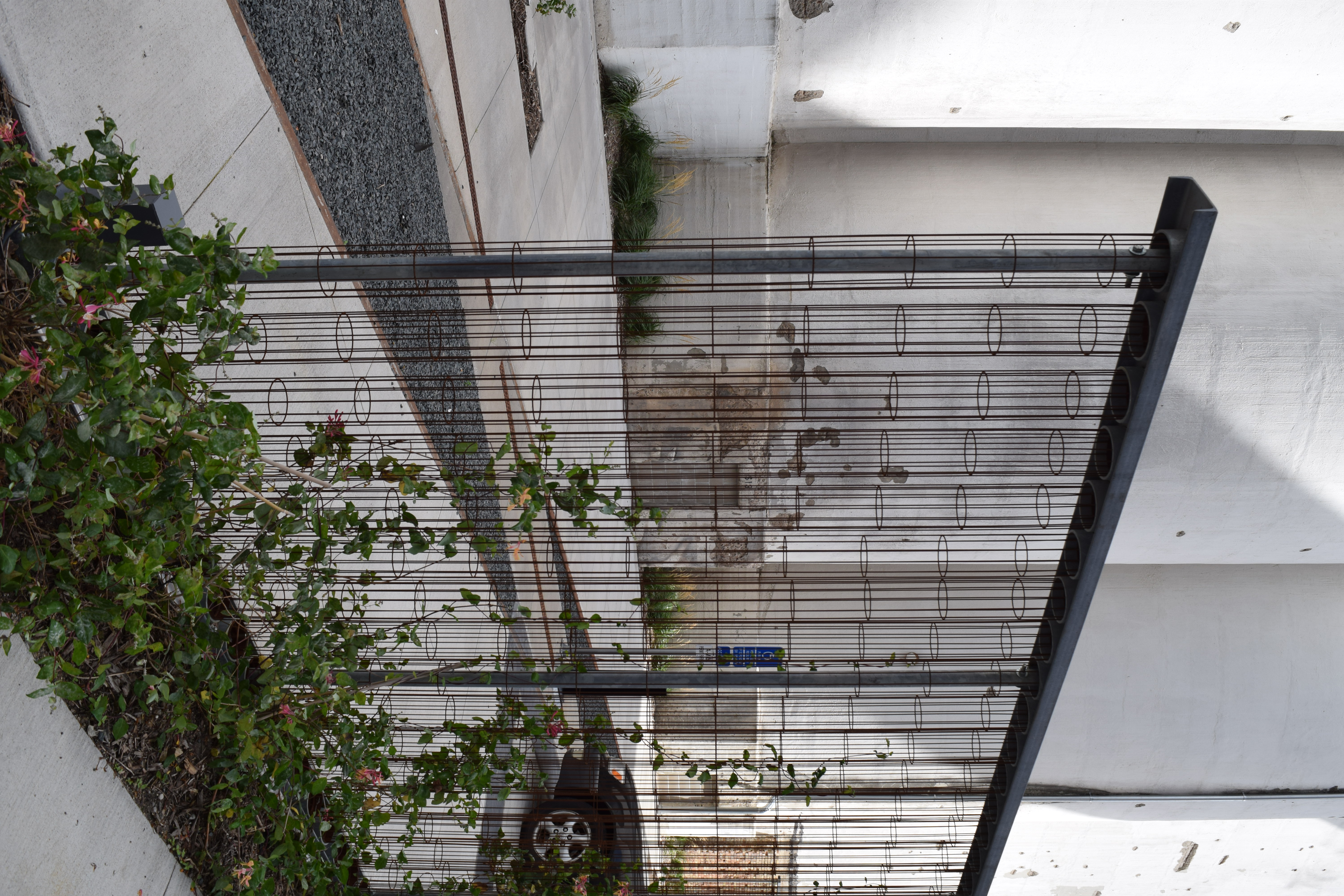
[Flowers, wire fence with grain storage in the background.]
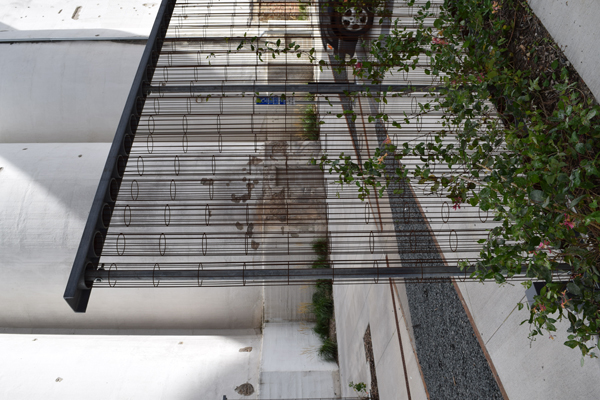
[More of the same but different.]
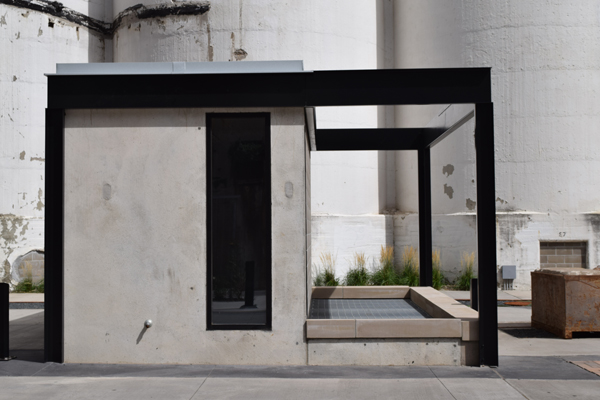
[I have no idea what this structure is. The black and white and the straight against the curved caught my attention. I also like the tufts of yellow in a line in the background.]
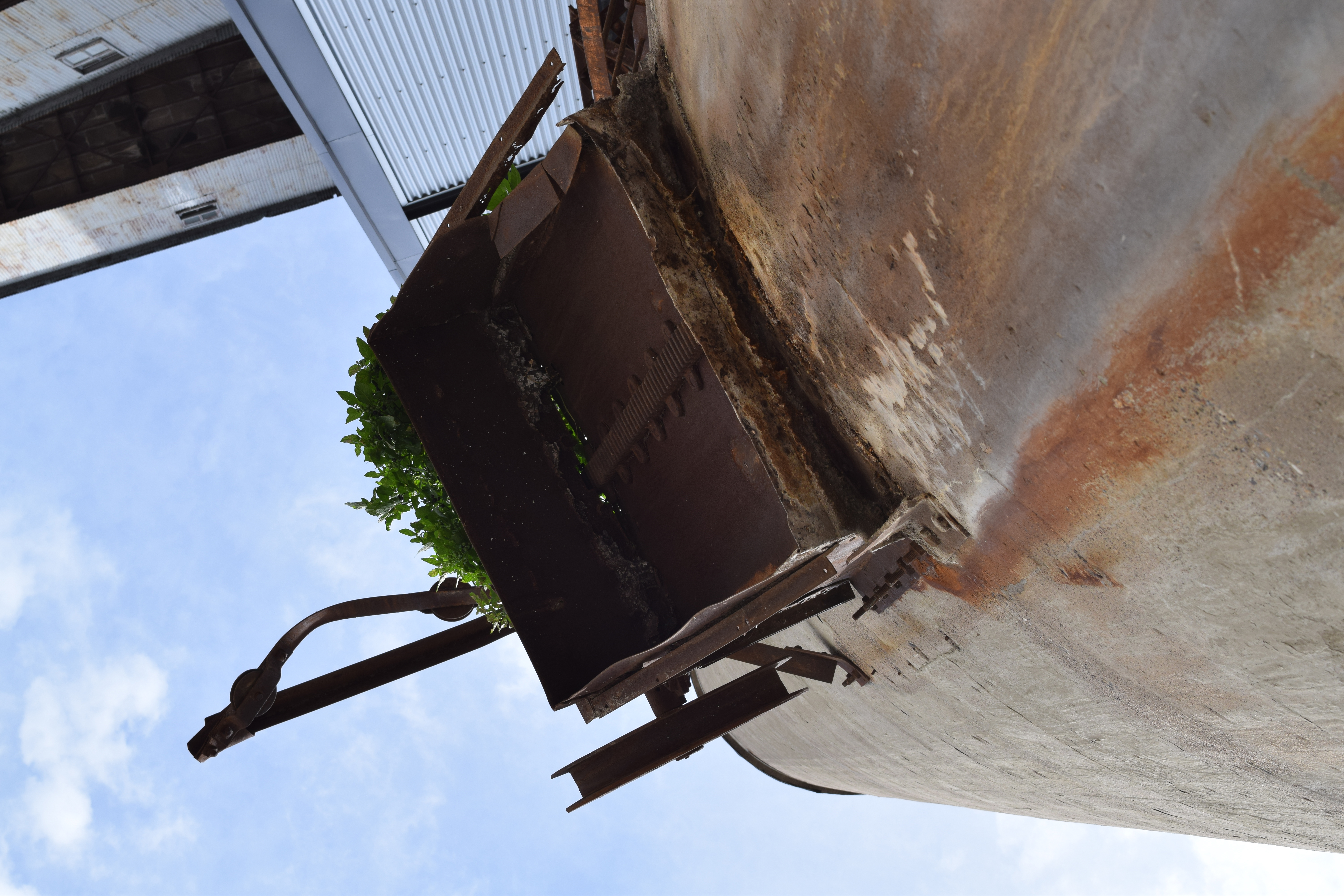
[A view from the bottom of a tower. Greens in rusty planter. Sky.]
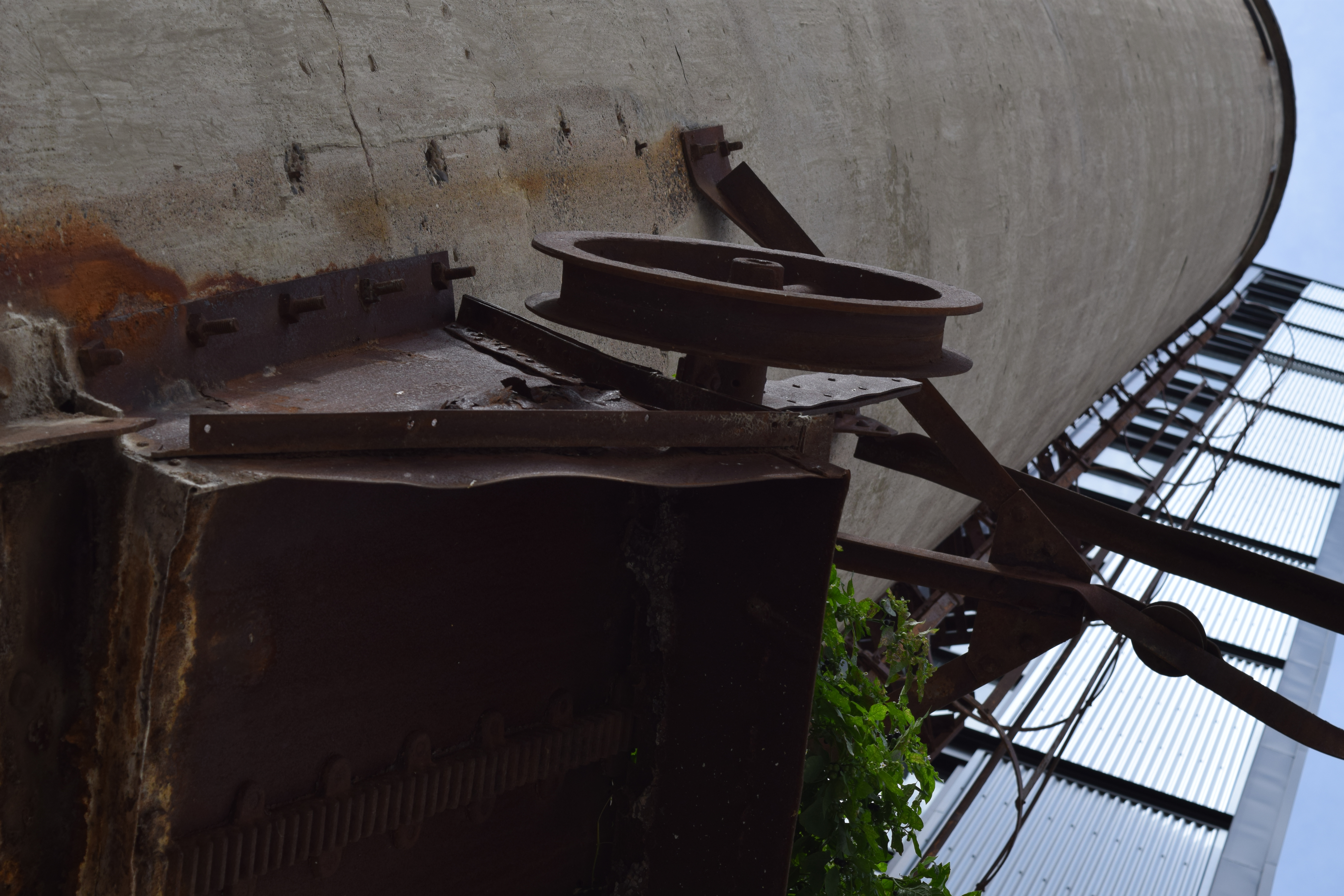
[A view from the bottom where there are sticky things on the ground. I think they are berries of some kind.]
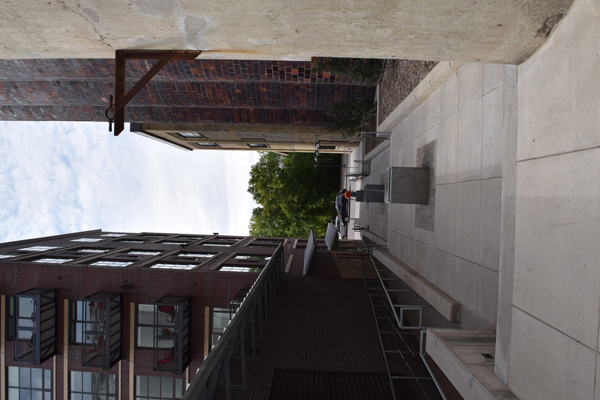
[Where is Brian? #1]
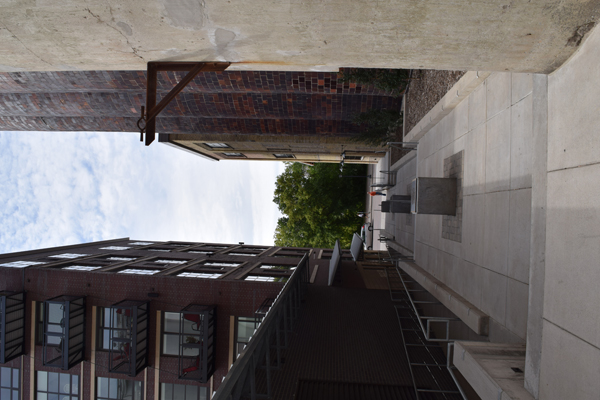
[Where is Brian? #2]
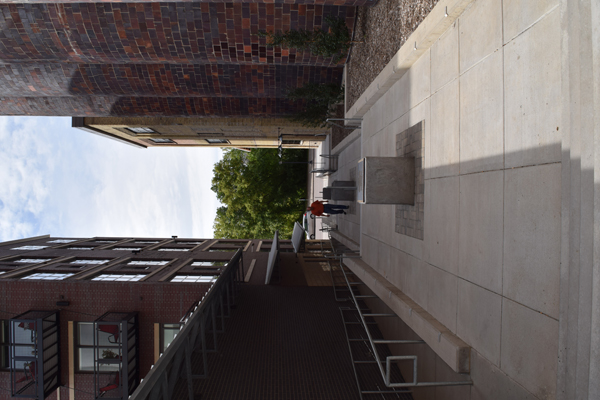
[Where is Brian? #3]
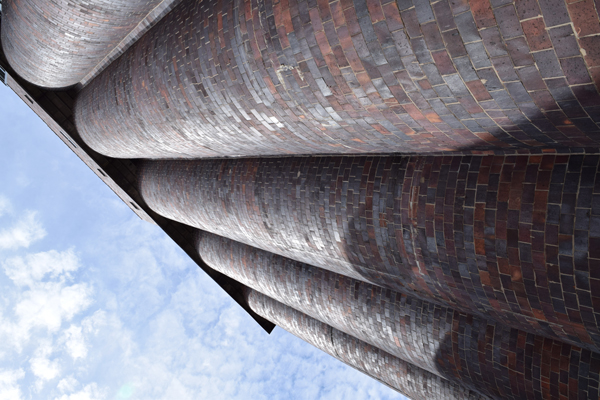
[Bricks and sky. #1]
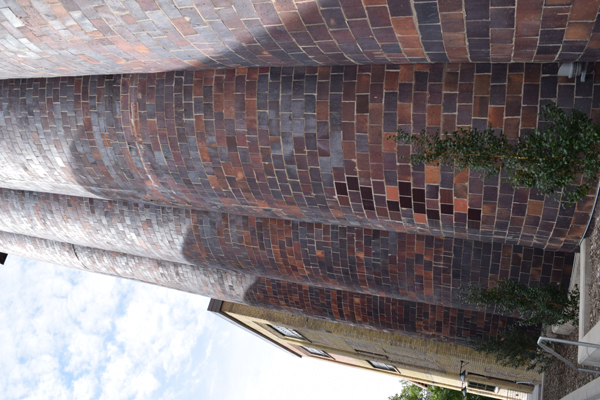
[Bricks and sky. #2]

[Brian has posed for a million pictures in this spot.]

[A million and one.]

[Two.]
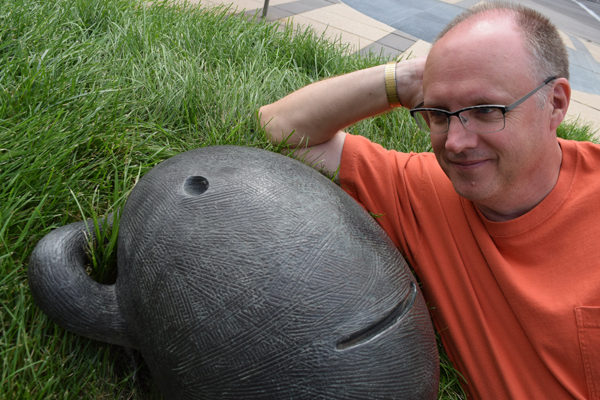
[Friends.]
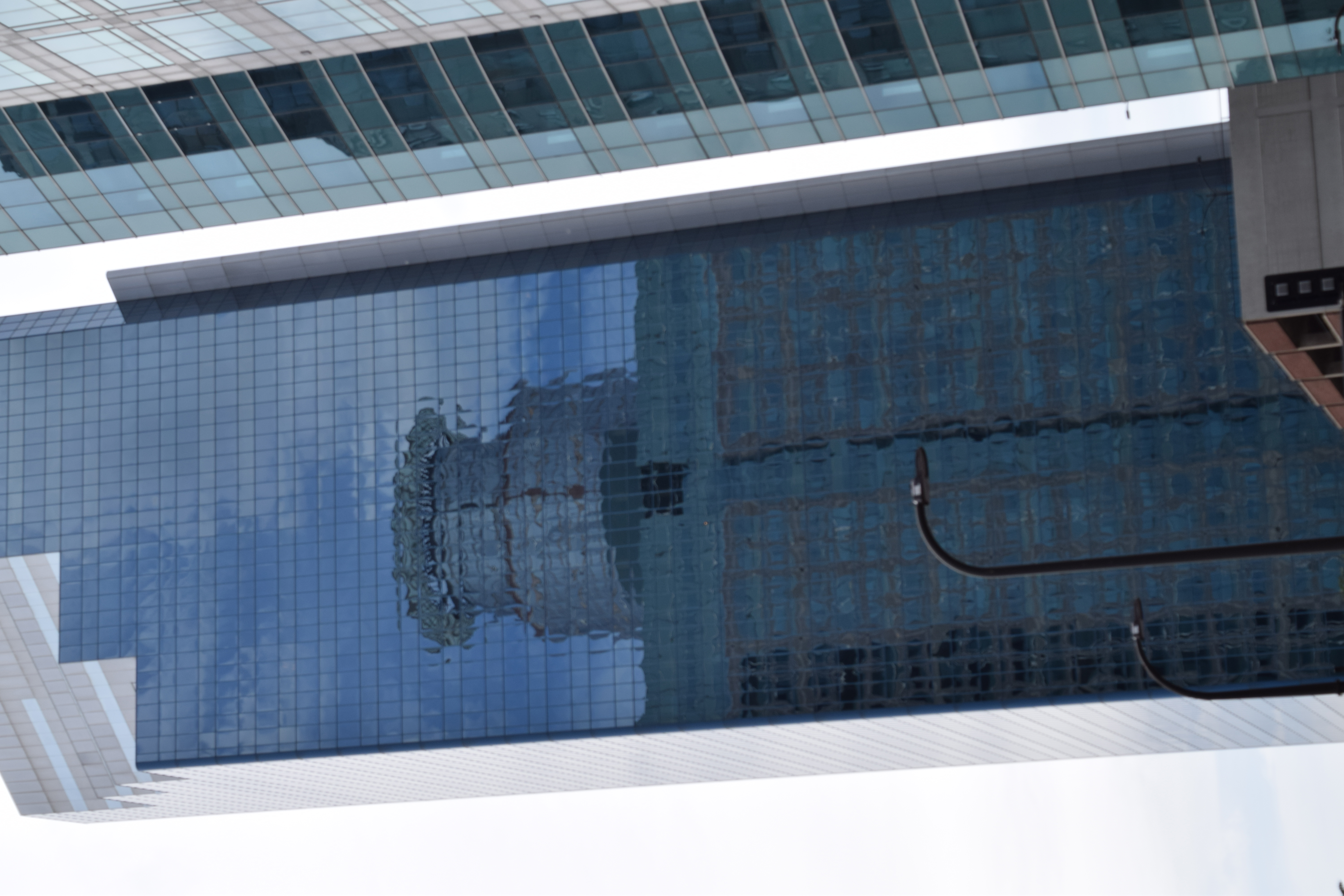
[Building on building.]
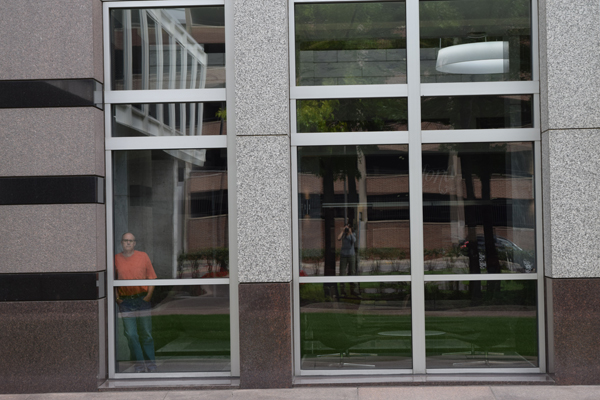
[I am in this picture too.]
The building is a gem we discovered one winter walking the skyways. We tried out the funky furniture in the lobby and freely wandered throughout the spaces that were open to the public. No one tried to shoo us away until I showed up with a camera. I wasn’t even inside the building.
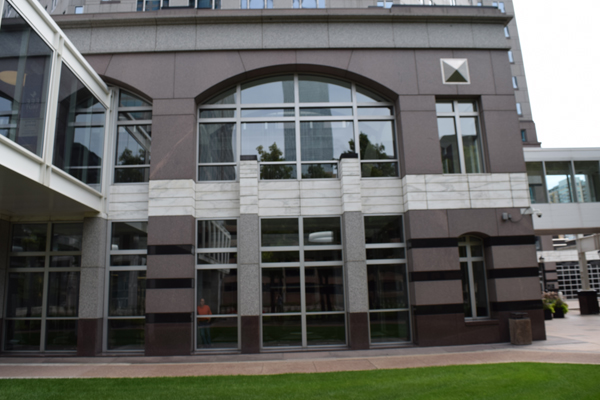
[Last year’s discovery. Yummy lobby.]
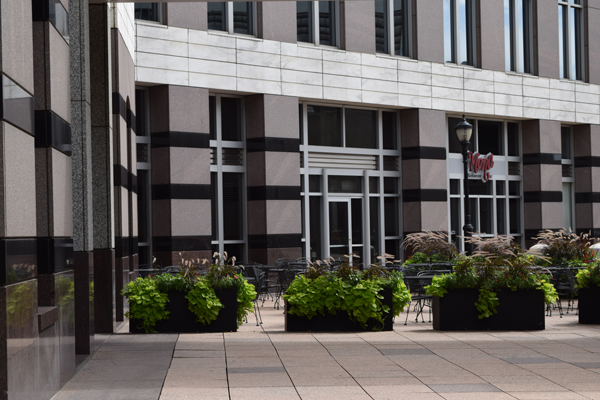
[This is art deco, right?]
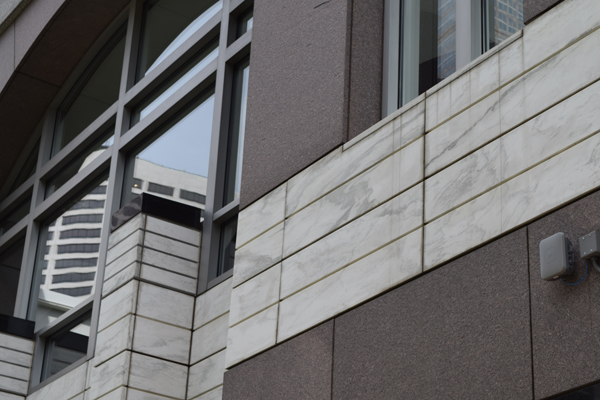
[Is that marble?]
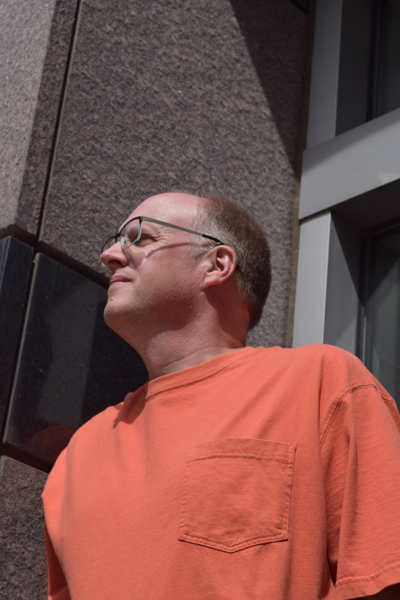
[The scene of the crime.]
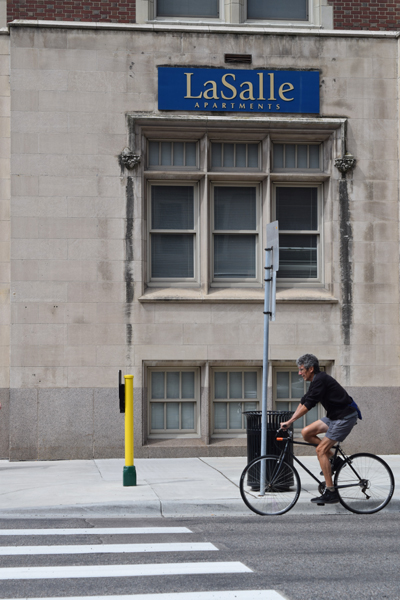
[LaSalle #1]
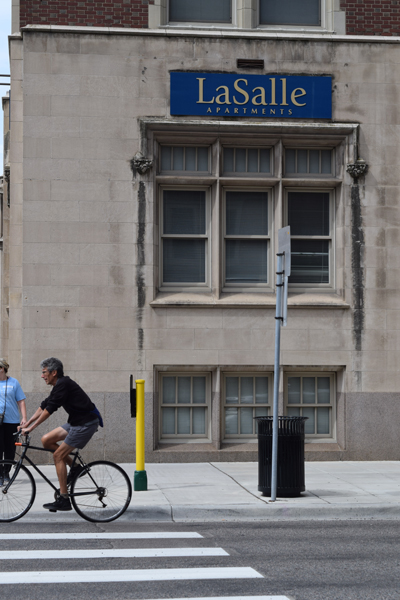
[LaSalle #2]
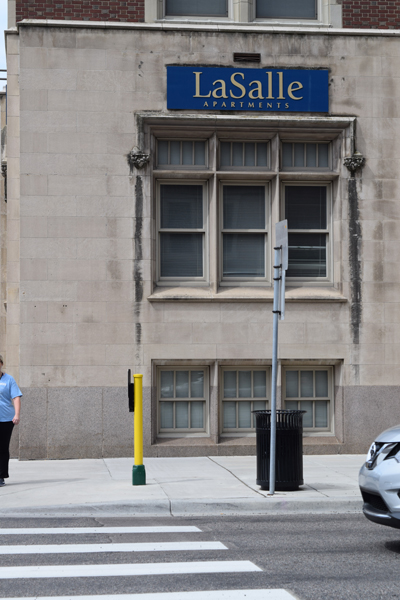
[LaSalle #3]

[On the steps of a sad kind of place.]
* After producing the first episode of QuOTeD, the Question of the Day Podcast where I asked “What does it mean to be grounded”, I started to notice how certain advertisements aimed to counter groundedness. So I took a picture of a bunch of them at the Mall of America.